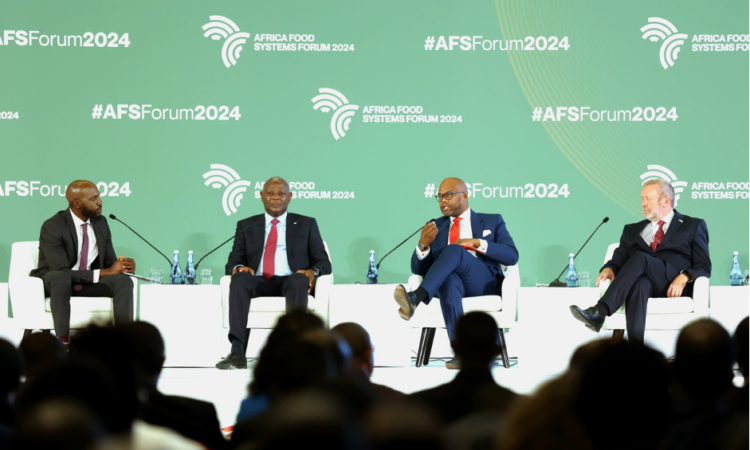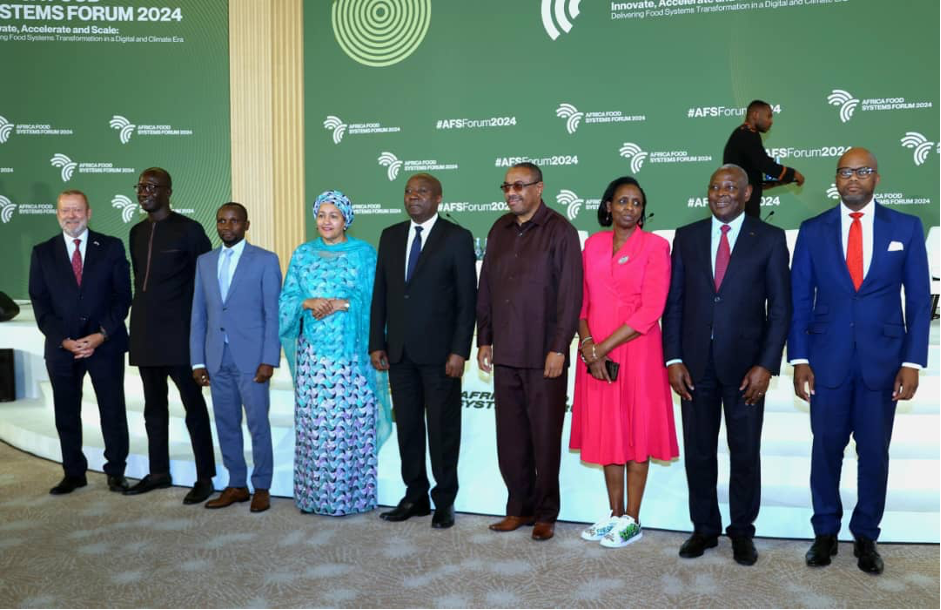AfCFTA Sec-Gen. calls for seamless agricultural trade across Africa …as UK pledges $50 million to boost agribusiness and climate resilience

The Secretary General of the Africa Continental Free Trade Area (AfCFTA), H.E. Wamkele Mene, has called for a comprehensive strategy to promote the seamless movement of food and agricultural products across the continent.
Speaking at the Africa Food Systems Forum 2024 in Kigali, Rwanda, Mr. Mene emphasized that the adoption of such a strategy is critical for strengthening the resilience of Africa’s food systems.
In his address, Mr. Mene highlighted that the launch of AfCFTA marks a transformative step toward facilitating markets and advancing agro-industrialization across Africa. “The goal is to bolster Africa’s capacity to respond to food insecurity and enhance the sustainability of our agricultural sectors,” he stated.
However, despite this progress, Africa continues to face significant challenges, including the importation of approximately $100 billion worth of agricultural and agro-processed goods annually. This reliance on food imports weakens the continent’s self-sufficiency and resilience to external shocks, such as global supply chain disruptions and price volatility.
Progress and Challenges in AfCFTA Implementation
Since AfCFTA’s historic entry into force in 2019, there has been notable progress in advancing the agreement’s objectives. So far, 47 out of 54 AfCFTA signatory states have ratified the agreement, with ambitious goals set for tariff liberalization on 97% of goods traded across borders. The agreement’s implementation promises to significantly reduce trade barriers and facilitate intra-African trade, particularly in agricultural products, which are crucial for food security and economic growth.
However, Mr. Mene acknowledged the challenges in fully realizing the potential of AfCFTA, including the need for infrastructure development, harmonized regulations, and streamlined border processes to support the free movement of goods across the continent.
UK announces suppport for Africa’s agribusinesses
At the same event, UK Minister for Africa, Lord Collins of Highbury, announced new funding to support early-stage agribusinesses in Africa and boost the continent’s resilience to climate change. The UK government has committed £25 million to AgDevCo, a UK-based social impact investor focused on investing in African agribusinesses. This funding will help scale up agricultural enterprises, create jobs, and enhance food and nutrition security across the continent.
Lord Collins stressed the UK’s ongoing partnership with Africa in strengthening food systems, combating the climate crisis, and addressing hunger and malnutrition. He pointed out that in Sub-Saharan Africa, 1 in 4 people are undernourished, making investments in agriculture vital for ensuring sustainable livelihoods and improving food security.
In addition to the £25 million commitment, Lord Collins announced the UK’s intention to back a new $50 million facility, AgDevCo Ventures, which will launch in early 2025. The UK government will contribute over half of the funds, with AgDevCo raising additional investment from other partners. AgDevCo Ventures will provide early-stage investment to small and medium-sized enterprises (SMEs) working within Africa’s agricultural sector. This support aims to help these businesses grow and increase Africa’s resilience to climate change.
Building a Stronger Agricultural Sector for Africa’s Future
Both Mr. Mene and Lord Collins highlighted the critical role agriculture plays in Africa’s economic and social development. For AfCFTA to reach its full potential, the development of a robust agricultural sector is paramount. By promoting intra-African trade in food products and supporting agribusinesses, Africa can move towards greater food security and reduced dependency on imports.
Investing in Africa’s agricultural markets not only creates jobs and increases incomes for millions of farmers but also addresses the root causes of poverty and malnutrition. With the support of AfCFTA and international partnerships like the UK’s, Africa is poised to harness its agricultural potential, boost resilience to climate challenges, and drive sustainable economic growth for the continent’s future.
By Eugene Davis








